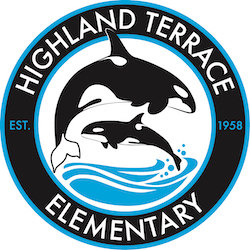PTA speaks for every child with one voice. As the largest volunteer child advocacy organization in the nation, we are the conscience of the country for issues affecting children and youth.
📢 Stay Informed with Advocacy Alerts
Easily join efforts to advocate for our kids and our schools by signing up for advocacy alerts from Shoreline PTA Council. You’ll receive action alerts and informational broadcasts that include quick, simple ways to communicate with legislators, as well as other information or updates relevant to advocacy work.
Legislative Advocacy
Shoreline Public Schools has a budget problem. Our district faced significant budget cuts when planning for the 2023-24 school year that deeply impact students and staff. Please read further to learn how we got here and what we can do to take action at the state and local levels. Thank you for getting involved and advocating for our students!
You can find more information on the district budget outlook and planning on the Shoreline Schools budget page.
For the latest advocacy news and updates, see Shoreline PTA Council’s Advocacy page. If you have questions, ideas, or comments, please reach out to legchair@shorelinepta.org.
District Budget Deficit: How Did We Get Here?
School funding is complex, but a simplified answer: At the state level, Washington restructured school funding for all public schools in 2018 as a result of the McCleary case. The new funding model made all school districts much more dependent on state funds and capped local ability to raise funds through levies. Current state funding does not fully cover school district operating costs, particularly in areas with a high cost-of-living like Shoreline.
The COVID crisis then gave schools: 1) new crises and rising costs that sapped reserves, 2) temporary federal funding that delayed budget cut decisions, and 3) declines in student enrollment. Because Shoreline is already at the max of our cap for our local levy, we can’t raise additional funds locally to make up the shortfall. Thus, we face significant cuts.
Action Steps: What Can We Do?
1. Write to State Legislators
We are asking all parents to please write to your state legislators. Let’s come together to call for increased education funding and push for Washington to restructure our education funding moving forward, such that we can maintain Shoreline’s high-quality education.
- State Senator Jesse Salomon: jesse.salomon@leg.wa.gov
- State Representative Cindy Ryu: cindy.ryu@leg.wa.gov
- State Representative Lauren Davis: lauren.davis@leg.wa.gov
2. Subscribe to Action Alerts from Shoreline PTA Council and WA State PTA
Action alerts are quick, easy ways to communicate with legislators as well as other information or updates relevant to advocacy work. Signing up is a great way to stay informed and easily join efforts to advocate for our kids and schools.
Sign up for alerts from Shoreline PTA Council – Actions and information specific to Shoreline School District
Sign up for alerts from WSPTA – Action alerts relevant for the state of Washington
3. Call Your State Legislators
We can make a real difference by picking up the phone and asking our representatives to fund our schools.
32nd Legislative District
- Senator Jesse Salomon: (360) 786-7662
- Rep. Cindy Ryu: (360) 786-7880
- Rep. Lauren Davis: (360) 786-7910
Contact School Board Members Directly
You can find complete contact information for the School Board on the school district website. Below are key contacts for Highland Terrace, which is located in District #3 and represented by Director Sarah Cohen.
- Director Sarah Cohen: sarah.cohen@ssd412.org
- Superintendent Susana Reyes: susana.reyes@ssd412.org
- All Board members: school.board@ssd412.org


